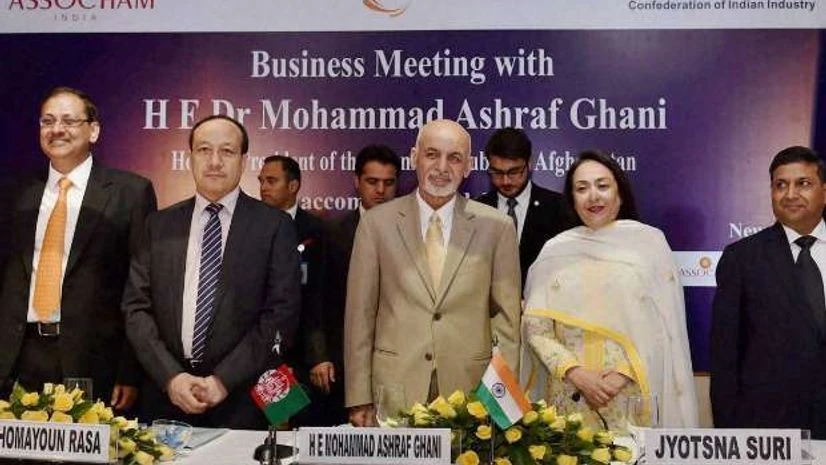Ghani also invited the Indian industry to invest in production of fertilisers and chemicals by tapping the natural gas from Afghanistan and Turkmenistan.
The ambitious Turkmenistan-Afghanistan-Pakistan-India (TAPI) gas pipeline was expected to be operational in 2018.
"We have a framework for transmitting with the pipelines from Turkmenistan to Afghanistan to Pakistan to India. But I invite you to another alternative.
TAPI will take five years. I invite the Indian industry to join us in production of fertilisers and chemical industry based on supply of gas from Turkmenistan and Afghanistan's natural gas," Ghani said at a business event here.
TAPI project has remained on drawing board since the four nations have not been able to get an international firm to head a consortium, which will lay and operate the pipeline.
Ghani said: "The global fertiliser industry is facing a huge problem of short supply chains... Turkmenistan's gas is available. If we don't tap it, we are likely to lose it to other opportunities.
"I am proposing a shortcut to you... Prime Minister Narendra Modi is interested in this approach. We need you to come together to turn Afghanistan into a centre of both fertiliser and chemicals. The power in this conception would be a byproduct rather than a primary product," he added.
The TAPI pipeline will have a capacity to carry 90 million standard cubic metres a day (mmscmd) gas for a 30-year period and was expected be operational in 2018. India and Pakistan would get 38 mmscmd each, while the remaining 14 mmscmd will be supplied to Afghanistan.
TAPI will carry gas from Turkmenistan's Galkynysh field, from the field the pipeline will run to Herat and Kandahar province of Afghanistan, before entering Pakistan. In Pakistan, it will reach Multan via Quetta before ending at Fazilka (Punjab) in India.
Exhorting the Indian industry to invest in Afghanistan, Ghani said immense potential exists particularly in areas related to infrastructure like railways, apart from fibre optics, power generation, mining and skill development.
"We see the Indian private sector as a key partner in transforming Afghanistan from an area shadowed by conflict to a hub where goods, ideas, people flow in all directions".
"Our first priority with you is to arrive at a cluster approach for development of infrastructure," the President said, adding that "Afghanistan has the potential to generate at least 26,000 MW of electricity from hydro power".
Pointing out that skill development "does not exist" in Afghanistan, Ghani said the country would like a major partnership based on India's experience on skill development".

)
